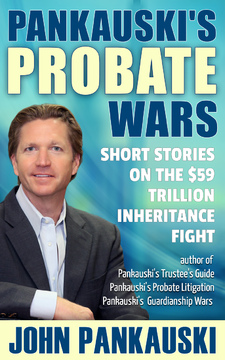Probate Fraud, Undue Influence, and Estate Litigation

Do you believe that one of your parents was a victim of probate fraud involving undue influence in Florida? What is probate fraud in Florida probate litigation? What should probate litigators in West Palm Beach know about probate fraud and undue influence? Is undue influence an example of probate fraud? When should you call a West Palm Beach trust and estates lawyer?
Florida trust and estates lawyers know that undue influence is a type of fraud. What is undue influence? Undue influence is a common allegation to try to set aside a will or trust, and is often described as over-persuasion, force, or coercion. If someone was forced to sign a deed, or change their power of attorney, those acts may be set aside if they were the product of undue influence. In addition, a Florida will, codicil, or trust can be thrown out if the testator or creator was unduly influenced to create them or change them. If you are a beneficiary of your dad’s estate and believe that your dad, who passed away in Florida, was a victim of undue influence, what should you do? You should consult with a Palm Beach probate litigation lawyer who can file a petition in a Florida probate, or a lawsuit against the person who committed the fraud.
The legal rationale behind an undue influence lawsuit in Florida is that a will or trust was not really voluntarily signed by your mom or dad: that, rather, the new will or trust, which dis-inherits you, was the product of, and was orchestrated by, another- such as a sibling that you don’t get along with or who is jealous of you.
To learn more about undue influence, you may want to read a June 6, 2017 opinion from the Court of Appeals of Georgia, Slosberg v. Giller. This case, although it is not a Florida probate case, is a great example of a litigation involving undue influence. Here, siblings fight over claims regarding probate fraud, specifically undue influence, after their father changes his power of attorney and estate planning strategy. In Slosberg v. Giller, the appellate court defines undue influence: ” Undue influence which overturns an otherwise legal contract or will is the exercise of sufficient control over the person, the validity of whose act is brought into question, to destroy his free agency and constrain him to do what he would not have done if such control had not been exercised.” Furthermore, ” to maintain a claim of undue influence, the requisite control must operate on the mind of the person at the time he or she is executing the document in question.” To learn more by reading the opinion, click here.